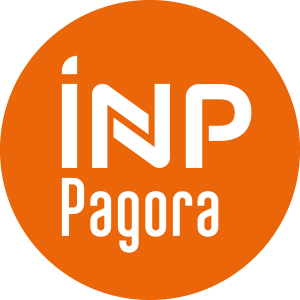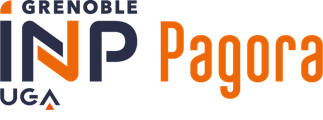Number of hours
- Lectures 9.0
- Projects -
- Tutorials 3.0
- Internship -
- Laboratory works -
ECTS
ECTS 15.0
Goal(s)
Learning outcomes :
- To understand a simple total or balanced chemical reaction based on the basic elements of apparent velocity laws (Kinetic laws; Reaction speed; Mechanisms; Progress rate...)
- To write material balances with reaction and energy transfer
- To size homogeneous chemical reactors, ideal isothermal or non-isothermal (volume, flow, temperature action, operating stability, etc.) based on reactor positions and classifications, balances (materials and energy) as well as knowledge of applied fluid mechanics (flow, agitation, etc.) and mathematical tools (solving simple differential equations);
- To determine the potential performance of reactors (selectivity, efficiency,...), and choose or even combine them, according to criteria (volume; kinetics; single, multiple series or parallel reactions);
- To characterize and model real reactors from ideal reactors by integrating the problems related to their implementation (Distribution of Residence Time,...)
Marc AUROUSSEAU
Content(s)
This course provides the necessary knowledge to characterize and to model real reactors (flow, RTD, ...)
- to reclaim the basic elements of the apparent kinetic laws of a chemical reaction;
- to master the writing of mass balance with reaction and energy balance;
- to design an ideal homogeneous chemical reactor (volume, flow,...);
- to determine the performances of reactors (selectivity, efficiency,...) and to choose them according to criteria (volume, kinetics, reactions,...);
- To know their operating risks related to their implementation (thermal losses, stability ...)
I. ELEMENTS OF HOMOGENEOUS CHEMICAL KINETICS
Kinetic laws; Reaction speed; mechanisms; Rate of progress ....
II. REACTORS: INTRODUCTION - REMINDERS
Positions and classification of reactors; balances
III. DESIGN OF COLD STORAGE IDEAL REACTORS
III-1 Case of a single reaction: Sizing, benchmarking, association reactors
III-2 Cases of multiple serial or parallel reactions: selectivity and yield
IV. IDEAL REACTORS NON-INSULATED
Energy balance, effect of temperature, operating stability
V. INTRODUCTION TO REAL REACTORS
Residence Time Distribution (DTS)
Four sets of exercises to the course and are made ??over the course of the water.
Prerequisitesnotions of balance sheets (material and energy); applied fluid mechanics (flow, ...); mathematical tools resolutions of differential equations (simple).
A 1.5 hour written exam.
Written notes (course/TP/TD) authorized. Copies of books or previous exams are banned.
Examination compensatable.
note égale à la note du DS
The course exists in the following branches:
- Curriculum - Pagora Engineer - Student - Semester 6
Course ID : 3FME1027
Course language(s): 
You can find this course among all other courses.
SMITH J. M. Chemical engineering kinetics. 2e éd., New York : McGraw-Hill,, 1970.
COME G.-M. ( http://sicd1.ujf-grenoble.fr/-Bases-de-donnees-de-A-a-Z-) Les Techniques de l'Ingénieur. Traité Génie des Procédés, Volume JP, article J1100, J1110, J1115..., 1995.
SCHWEICH D. Génie de la réaction chimique. Londres : Paris : New York : Ed. Tec. & doc., 2001
Références bibliographiques données dans les polycopiés de cours.



